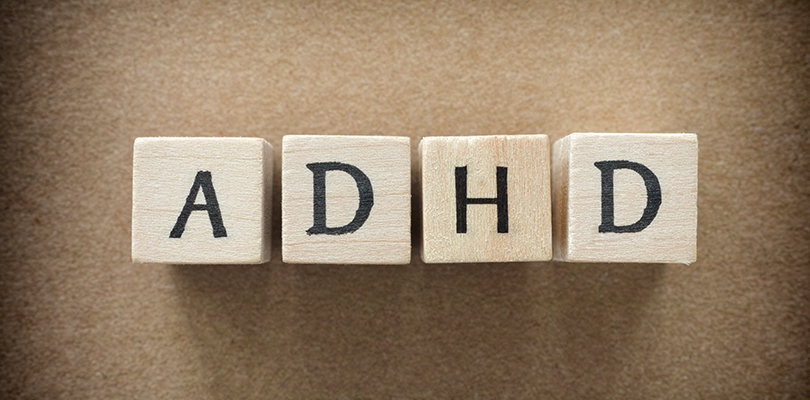Phone Games for ADHD
Can phone games really improve someone’s ADHD? Yes, but not every game. Especially not games where violence is the only goal. In this article we explain how phone games for ADHD can help manage symptoms and the different types of games people with ADHD should play.
ADHD and Its Symptoms
Attention deficit hyperactive disorder (ADHD) is a common mental disorder and first appears between the ages of three and seven.
Common symptoms and signs of ADHD include:
- Getting easily distracted
- Sensory overload (too much external stimuli for the brain to process)
- Reckless and risky decision making
- Lack of social skills
- Brain fog
- Intense periods of focus known as hyperfocus
To understand why phone games for ADHD are good, there are two things about ADHD you need to know: dopamine and executive function.
How Are Dopamine and ADHD Related?
Dopamine is a chemical in the brain that enables communication. Without dopamine, there would be no happiness, joy, or excitement. You would always feel bored.
The human brain releases dopamine when you perceive or feel any of the following:
- Challenge
- Curiosity
- Urgency
- Interest
What Is Executive Function?
Everyone has a mechanism in their brain responsible for deciding what they should do. That’s why the term “executive function” describes that mechanism.
In people with ADHD, executive function can be minorly or majorly impaired, depending on the individual and how they feel at any given moment. When your executive function is impaired, you will make decisions less efficiently. You will not be able to think with the same clarity as someone with unimpaired executive function.
For example, you may not be able to manage your time and you may not be able to come up with a strategy or engage in critical thinking. You may even lose control of your emotions and how you react based on your emotions.
4 Health Benefits of Phone Games for ADHD
1. Playing Phone Games Relieves Stress and Anxiety
After a hard day at work or school, one thing that is almost guaranteed to make someone feel better is playing their favorite game alone or with friends.
Results from a 2009 study indicate people systematically use video games as a way to recover from fatigue or emotional distress. This recovery is a huge part of what makes gaming so helpful for people with ADHD. The study notes that people with emotional stress are more likely to relax using video games than people with fatigue-related stress. Based on that finding, it seems like games distract people with ADHD from their emotional problems.
It’s possible that the fun or dopamine generated from gaming helps with executive function and when executive function improves, your ability to process your emotions also improves.
Can ADHD get worse with age? Yes and no. If ADHD is not properly treated or managed, it's possible the symptoms may affect one's overall quality of life.
2. A Mode of Self-Medication
Earlier you learned that the human body releases dopamine when you perceive or feel challenge, curiosity, urgency or interest. When someone plays a video game, it’s highly likely at least one, if not all four of those factors are in play. A study shows that video games can increase dopamine levels. This was discovered back in 1998, when video games were not as mainstream as they are.
Amazingly, ADHD medication was how we found out people with ADHD use video games to self-medicate. In one study, 52 children with ADHD were given Ritalin, a popular ADHD medication that helps regulate dopamine levels. The children began to play video games less after taking ADHD medication. This is because their medicine began giving them the same benefits as video games.
It’s truly astounding when you think of all the ways people with ADHD self-medicate, including by consuming large amounts of caffeine.
3. Offers a Sense of Inclusion
In a world full of non-ADHD people, or “neurotypical” people (people with brains considered normal), having ADHD makes it difficult to fit in. ADHD can cause social and financial problems from childhood to adulthood when it goes untreated and even when treated.
Poverty, loneliness, depression and anxiety are not strangers to those with ADHD. The good news for people with ADHD is that phone games and other games make ADHD irrelevant. In a video game, you do not have to worry about doing homework or arriving to work late. You’re in control and nobody will judge you.
Video games are a means of escaping the reality of ADHD. Besides entertainment, they also provide a sense of accomplishment. That’s undoubtedly the reason why people with ADHD play games more than neurotypical people.
4. Learning and Brain Development
Not all games are created equal, but a good many can help you learn more. 72 volunteers played two different games (Starcraft and The Sims) for 40 hours over six to eight weeks. (Starcraft is a real-time strategy game, while The Sims is a realistic simulation of daily life. Both games are played by millions of people worldwide.)
The gameplay in The Sims is more relaxing and casual. Participants did not receive any benefits from playing it. But by playing Starcraft, a strategy game that requires efficient time management, critical thinking and multi-tasking, participants increased their cognitive flexibility.
Cognitive flexibility is the mental ability to switch between thinking about two different concepts and to think about multiple concepts simultaneously. It also affects your ability to switch from thinking to taking action. Because gameplay in Starcraft requires more input from a player, the player has to think more than when they play The Sims.
To win at Starcraft, a player must out-think one or more enemy players, which increases the motivation for a player to think harder. By thinking harder, they naturally increase their cognitive flexibility overtime. The Sims does not increase cognitive flexibility because it has a slower, more casual pace that is not competitive or demanding.
The Best Phone Games for People With ADHD
Warning: these games can be highly addictive for anyone, especially people with ADHD.
Minecraft
This is for ages eight and up. Minecraft is a sandbox game where players gather materials and use them to build anything they can imagine. It allows for an unlimited variety of interaction and engagement. This game helps people with ADHD develop their planning skills and increases their creativity.
Starcraft
This is for ages 11 and up. Starcraft allows players to harvest resources and use them to buy buildings, units and research. A player loses when another player destroys all their buildings. This game can increase cognitive flexibility.
Civilization VI
This is for ages 14 and up. Civilization gives you control of a historic civilization and its leader, from George Washington of the Americas, to Mana Musa of the Mali Empire. Players can engage in war, trade, planning, diplomacy, strategy and exploration with this turn-based, civilization-building simulation game. A great game for learning history, strategy and geography.







